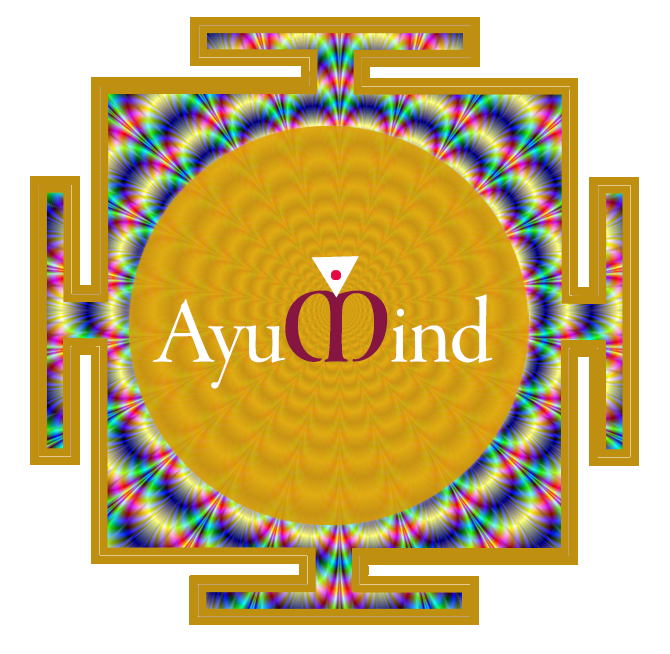What is Ayurveda?
Ayurveda is the “science of living,” an ancient health science from India. According to this science each person’s health problem is unique, requiring individually tailored program. Modalities include, food, lifestyle/daily routine, herbal formulas, cleansing/detox procedures, breathing exercises, as well as yoga and meditation types for your constitution.
Ayurveda seeks to restore balance within the body. Diet plays a primary role in achieving this balance, as it is food that gets digested to create new tissues while herbal remedies aid this process. When food is not properly digested, it leads to the buildup of toxins, or ama, in the body.
According to Ayurveda, everyone is born with a unique combination of the five elements (or the three doshas) – this is our prakruti or constitution. When this inborn constitution becomes imbalanced through diet, lifestyle, time of day, time of life and climate, it is called vikruti or pathology. Therefore, Ayurveda suggests the use of different qualities and substances to bring these elements back into balance. Any particular individual may be primarily one dosha, or any combination of the three (i.e. vata, pitta, kapha). Typically, it is our strongest dosha that gets imbalanced.
Part of the beauty of the Ayurvedic dietary consideration is the wisdom that links a particular taste and quality of food with its effect – whether aggravating or pacifying – on a particular dosha.
In Ayurveda, the concept that ‘like increases like’ means that a person with too much heat, or pitta, would not try and achieve balance by eating foods that are heating or that increase pitta; rather they would balance this dosha by eating foods that have the cooling qualities of water or earth and ether.
-
Sujatha addresses your health concerns, imbalances, chronic conditions, and wellness goals. The initial consultation of 60-90 minutes includes:
A thorough assessment of your personal health history
Particulars of primary concerns
Ayurvedic assessment of pulse, tongue, face, and nails
Your unique constitution
Your current imbalances
Your optimal diet
Your optimal exercise program
Herbal nutritional recommendations
Stress relief practices including body work, breath work, and meditation
-
In Ayurvedic philosophy there is a perspective on cleansing that goes well beyond the cleanse itself. It is about creating a life-practice that can sustain and nourish you so that you never need to be in any of these exhausting states of overwork, overwhelm, and overweight. There are many cleanses on the market; but Ayurveda address the deeper imbalances of body, mind, and emotions for the long term.
Benefits include:• Increased energy, enhances self-reliance, strength and vitality
• Decreases bloating and promotes weight loss
• Improves memory, concentration and mental clarity
• Stronger immune system to ward off disease and increase longevity.
• Eliminates toxins and toxic conditions from your body
• Reverse the negative effects of stress on your body and mind thereby slowing the aging process
• Prevents disease process and corrects imbalance
• Provides deeply needed rest and relaxation
• Deepens self-awareness and spirituality
• Clears emotional stagnation and allows experience of inner joy
• Helps develop a self-disciplined daily routine that includes yoga, meditation and self-care
• Brings a sense of wellbeing
-
Pancha Karma is a method of purification and rejuvenation. Ayurveda is the science and art of appropriate living which helps to achieve longevity. To achieve this balanced state of body, mind and consciousness, Ayurveda prescribes Panchakarma Therapy for cleansing the body of toxins.
According to Ayurveda, every human being is a unique phenomenon of cosmic consciousness: the three Dosha (humors): Vata, Pitta, and Kapha, that determines every individual’s psychosomatic temperament or constitution.Pancha Karma has three stages:
Purvakarma (pre-cleanse)
Pradhana Karma (cleanse)
Paschath Karma (post cleanse)
For a complete description of the Pancha karma process, please click here.


